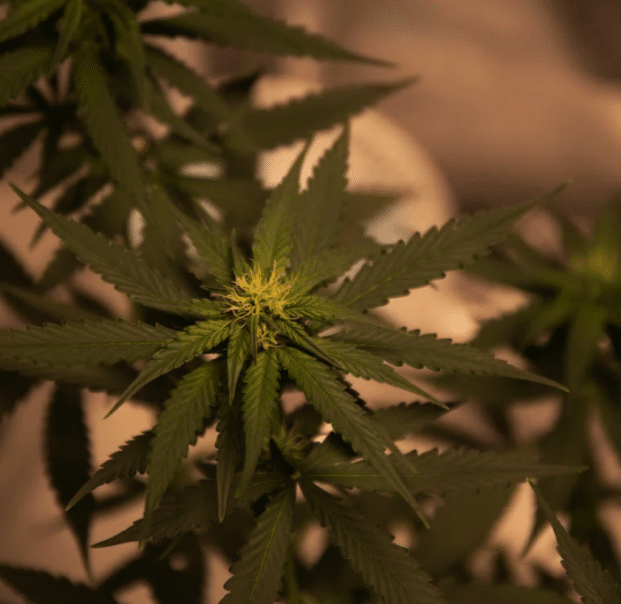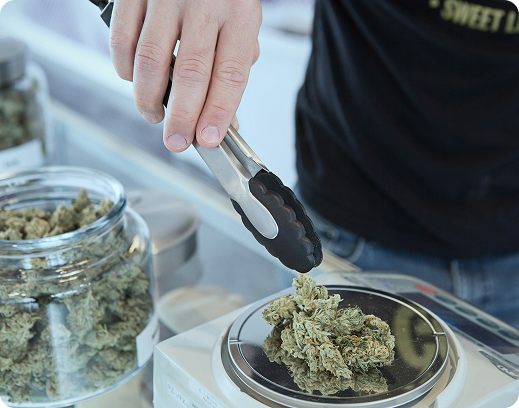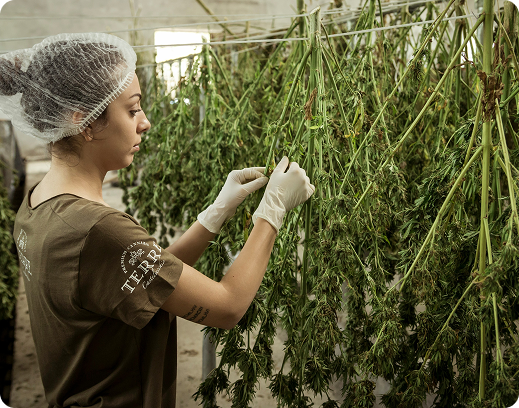How to Open a Dispensary in Maine
If you are passionate about cannabis, possess a business-oriented mindset, and are considering venturing into the cannabis industry, opening a dispensary in Maine could be a rewarding endeavor.
However, navigating the complex process of opening a dispensary can be overwhelming, especially for newcomers.
From understanding the legal requirements and regulations to securing the necessary licenses, several crucial steps must be followed to ensure a successful venture.
This article walks you through the step-by-step overview of opening a dispensary in Maine, providing you with the knowledge and resources needed to navigate the regulatory landscape confidently.

Overview of Cannabis in Maine
In November 2016, Maine legalized recreational marijuana despite the close vote. Licensed dispensaries must register as non-profits, and priority is given to registered caretakers and existing dispensary owners with a long history of medical cannabis legalization in the state.
Currently, only Maine residents are eligible to apply for a marijuana dispensary. Municipalities can reject, ban, or impose moratoriums on licensed dispensaries if they fail to comply with local regulations.
Prospective business owners should exercise caution and consult authorities before applying for a marijuana license.
Why Start a Cannabis Business?
Opening a dispensary offers immense opportunities:
-
High Demand
With the growing acceptance of medical and recreational cannabis across multiple states and countries, dispensaries are seeing a surge in demand. Consumers are increasingly looking for high-quality products for health, wellness, and leisure, creating a constant need for reliable, accessible dispensaries.
-
Job Creation
The cannabis industry is projected to create thousands of jobs across various sectors, including cultivation, retail, logistics, and marketing. This growth not only provides employment opportunities but also contributes to local and national economies.
-
Strong ROI Potential
Entrepreneurs who navigate the complex regulatory landscape can make big returns on their investments. With proper business planning, branding, and compliance, dispensaries can tap into a rapidly growing market with high-profit margins.
Types of Dispensary Licenses in Maine
Understanding the different types of dispensary licenses is essential for individuals and businesses looking to participate in Maine’s cannabis industry.
The Maine Office of Marijuana Policy is responsible for the issuance of licenses so that the businesses can cultivate, produce and sell cannabis products.
Let’s quickly glimpse at the different licenses you need before opening a dispensary in Maine.
Conditional Adult-Use Retail Dispensary License (CAURD) in Maine
The CAURD license is granted by the Maine Office of Marijuana Policy (OMP), the regulatory authority responsible for overseeing the state’s adult-use cannabis program.
The OMP has established regulations and guidelines that applicants must follow to obtain the CAURD license and operate a retail dispensary in compliance with state laws.
The CAURD license allows the licensee to legally sell cannabis products to adults aged 21 and older for recreational use. However, it’s important to note that selling cannabis products to individuals under the legal age or without proper identification is strictly prohibited.
Other License Types for Cannabis in Maine
- Cultivation Facility License
- Products Manufacturing Facility License
- Marijuana Store License
- Testing Facility License
- Occupational Licenses
- Social Club Licenses

Understanding the Cannabis Market in Maine
Maine, one of the pioneering states on the East Coast to legalize recreational marijuana, is experiencing a thriving cannabis industry. Four years ago, the state began accepting license applications for operating recreational cannabis businesses, generating high expectations among consumers and business owners.
As of June 2022, 90 active adult-use retail cannabis stores are spread across 34 municipalities in Maine.
The sales figures for adult-use cannabis in Maine demonstrate remarkable growth. In 2020, before legalization, retailers generated sales of $4.3 million. However, in 2021, following the legalization of sales in October, the sales skyrocketed to $82 million.
By May 2022, adult-use marijuana sales had reached $159 million, indicating a trajectory that surpassed the previous year’s sales.
Surveys conducted project a bright future for Maine’s recreational cannabis industry. By 2024, annual sales for these businesses are estimated to range from $275 million to $325 million.
Remarkably, cannabis has ascended the economic ranks in Maine, surpassing even the iconic lobster industry. It currently holds the position of the third most popular item sold in the state, trailing only lobsters and potatoes.
Application Process for a Dispensary License
While considering entering the cannabis industry and opening a dispensary in Maine, understanding the application process is essential.
You need to know the steps, the required documentation, and general timelines to help you navigate the intricacies of obtaining a dispensary license.
You would be one step closer to your goal of running a successful cannabis business in Maine while following the rules and meeting the requirements.
Steps Involved in Obtaining a License
Conditional Licensure
All applicants are subject to a background check for Conditional Licensure. Additionally, each applicant has to get an OMP-issued Individual Identification Card.
Once all application forms and necessary attachments have been submitted, the OMP will review them. The OMP will issue either a denial or a conditional one-year license within the span of 90 days.
Local Authorization
To qualify for an active license, all individuals holding a conditional license must obtain local authorization from the municipality where they operate.
The municipality has 90 days to evaluate the request and send an approved local authorization form directly to the OMP.
Once the OMP receives the approved local authorization form, they will request additional information and updated documents from the applicant within ten working days, including:
- Relevant tax information and accompanying documents.
- An official Plan of Record, specifically the Facility Plan.
- Documentation demonstrating compliance with all electrical and permitting requirements.
- Any modifications or updates to the original application.
Active Licensure
Once all requirements have been fulfilled, the Office of Cannabis Programs will send an invoice to the individual to pay the licensing fee. After receiving the payment, the OCP will issue a valid license for a year.
Note: Fees can only be paid using a bank check or money order. Personal checks and cash payments are not accepted.

Required Documentation for a License
- A business plan detailing operations, marketing, and financial projections
- Floor plans of your dispensary
- Security plan preventing theft, diversion, and unauthorized access
- Inventory and record-keeping protocols
- Financial statements
- Zoning compliance and permits or approvals
- Background and Qualifications of key dispensary personnel
- Staff training and hiring
- The regulatory authority’s additional application forms and documents.
Timelines for Obtaining a License
After receiving approval from the municipality where you plan to operate, the state department responsible for licensing will typically issue an active license within a timeframe of approximately 10 days.
Financing and Business Plan for a Dispensary
To obtain a cannabis dispensary license in Maine, it is a requirement by the state to submit a comprehensive business plan. The licensing authority must approve this business plan, the Office of Marijuana Policy.
The OMP carefully evaluates the business plan, looking for specific elements that are crucial for qualifying for a license or permit to operate a dispensary in a particular area. These fundamental elements are:
- Executive Summary
- Company Analysis
- Market analysis
- Locational information
- Operational plan
- Financial analysis
- The management
- Marketing Plan
- Risk and Security Plan
Similarly, the OMP also pays close attention to the financial information provided. Since starting and running a cannabis business requires substantial capital, the OMP requires applicants to demonstrate their capacity to raise the necessary funds.
It is essential to indicate your plans for raising capital and provide details about existing investors already involved in your venture.
Types of Financing Available
Here is a list of some of the more likely places you could go to secure funding for your cannabis dispensary.
- Self Funding
- Bank Loans
- Small Business Administration(SBA) Loans
- Private Investors
- Equity Finance
- Crowdfunding
- Joint Ventures
Importance of a Solid Business Plan
Whether you’re embarking on your new business venture or have been immersed in entrepreneurship for a considerable time, a business plan is vital. It catalyzes enhancing your company’s internal operations and empowers you to establish tangible objectives.
In a demanding sector like the marijuana industry, a comprehensive business plan holds paramount importance. It showcases your professionalism and framework for your strategic roadmap for achieving success in this field.
Plus, having a well-crafted business plan can significantly increase your likelihood of securing investments and expanding your business. It permits regulatory bodies to present compelling pitches to potential investors and partners, effectively managing budgets and establishing a clear timeline for your business launch.
Risk Management Plan
The risk management process serves as a structured framework for implementing necessary actions. By employing a risk management plan, you can effectively reduce the potential adverse effects of risks that may put at risk your cash flow or harm your brand reputation.
Furthermore, this plan will foster a culture of prudent risk awareness and management within your business.
Here are the basic steps to create a substantial risk management plan:
- Risk Identification
- Risks Assessment
- Risk Elimination or Minimization
- Assign responsibilities
- Develop Backup Strategies
- Communicate and staff training
- Monitoring new risks
Market Research and Location for a Dispensary
If you are considering opening a dispensary in Maine, conducting complete market research is a significant part. Complete market research will give you a clear insight into market trends, your target customer, their specific needs, and the increasing demand for cannabis products.
Overview of the Maine Market for a Dispensary
Maine’s cannabis industry is well-established, with legalized medical and recreational marijuana. Cannabis has emerged as a significant player in Maine’s economy, following closely behind lobsters and potatoes as the state’s third best-selling product.
Many entrepreneurs envision Maine as a tourist attraction for its unique local cannabis experience, emphasizing the importance of maintaining local vertical integration throughout the business, from plant development and harvesting to recreational sales and everything in between.
Trends and Competition in the Maine Cannabis Industry
The Maine cannabis industry has experienced significant growth and evolution over the past few years. However, it is assumed that the recreational market is expected to outpace the medical marijuana market regarding financial opportunities.
State legislators and the business sector know this trend and have actively positioned themselves to capitalize on it.
Some key trends and factors to consider are:
- Demand for both Medicinal and recreational cannabis is rising.
- Distinct markets for medical and recreational cannabis are emerging.
- Maine offers diverse cannabis products like flowers, concentrates, edibles, etc.
- Strong branding and practical marketing efforts for dispensary success.
- Normalized social consumption will continue to increase.
- Increased focus on co-manufacturers and distributors.
Location Requirements for a Dispensary
Selecting the right location is critical for the success of your dispensary. You must consider the following:
- Only communities with adopted ordinances permitting marijuana businesses can open cannabis dispensaries.
- Town or county commissioners must grant permission for a marijuana business to operate in a town, plantation, or unincorporated region.
- Cannabis establishments must not be located within 500 feet of an existing school unless the municipality imposes a narrower buffer zone of at least 500 feet.
Insurance Requirements for a Dispensary
Cannabis insurance is a policy designed to mitigate risks unique to the cannabis industry. It covers concerns such as workplace injuries, accidental bodily injuries and property damage to others, crop failure, and theft.
Types of Policies Required
- General Liability Insurance
- Product Liability Insurance
- Property Insurance
- Cyber Security Insurance
- D&O Insurance
- Workers Compensation Insurance
Coverage Limits
Regarding insurance for a dispensary in Maine, specific coverage limits may vary depending on various factors, such as:
- The size of your operation
- The value of your inventory
- The specific risks associated with your business.
Costs Associated with Insurance
Insurance for cannabis businesses can cost anywhere from several hundred to several thousand dollars annually. However, it depends on several factors, including the coverage types and limits you choose, the size and nature of your business, location, and your claims history.
Costs of Opening and Running a Dispensary
- License and Permit Fees: $2500 Annually
- Startup Costs: About $100 to $40,000.
- Taxes and Fees: 10% sales tax
Resources for Potential Entrepreneurs in Maine
Maine offers a robust startup infrastructure with numerous organizations dedicated to supporting entrepreneurs. Here’s an overview of the critical startup organizations in the state.
Additional Resources and Links for Opening a Dispensary in Maine
- Maine Office of Marijuana Policy (OMP)
- Startup Maine
- Maine Center for Entrepreneurial Development (MCED)
- Maine Cannabis Industry Association (MCIA)
- New Ventures Maine
- Small Business Development Centers (SBDCs)
Industry Experts in Maine
FAQ about Opening a Dispensary
What Are the Qualifications for a CAURD License?
The Maine Office of Marijuana Policy issues CAURD licenses. The specific qualifications for a CAURD license may vary depending on the license type you seek.
Generally, you must meet requirements such as being at least 21 years old, not disqualifying criminal convictions, and demonstrating compliance with relevant regulations and laws.
How Much Does It Cost To Open and Run a Dispensary?
The cost of opening and running a dispensary in Maine can vary significantly based on various factors. However you can expect to pay annual license fees of $2500 and variable startup costs ranging from $100 to $40,000. Ongoing expenses include a 10% sales tax on cannabis products.These may include the location, size of the operation, lease or purchase costs, renovation expenses, inventory, security systems, employee salaries, marketing, and licensing fees.
How Much Does It Cost To Open and Run a Dispensary?
Dispensaries in Maine must adhere to specific location requirements. They should be at least 500 feet away from schools. Additionally, local zoning regulations may have additional restrictions or requirements, so reviewing and compiling with those regulations is essential.
What Types of Insurance Policies Are Required for a Dispensary?
While insurance requirements may vary, some common types of insurance policies that dispensaries often obtain include general liability insurance, property insurance, product liability insurance, workers’ compensation insurance, and cybersecurity insurance.
Can I Apply for a Dispensary License if I Don’t Meet the Qualifications for a CAURD License?
You must meet the qualifications for a CAURD license to be eligible to apply for a dispensary license in Maine. It is crucial to review the specific eligibility criteria outlined by the Maine Office of Marijuana Policy to ensure compliance and determine if you meet the requirements for licensure.
How Long Does It Take To Obtain a Dispensary License?
The timeframe to obtain a dispensary license in Maine can vary; however, usually, it takes 10 days. The process typically involves completing the application, submitting required documents, undergoing background checks, and meeting all regulatory requirements.
What Are the Regulations for Advertising a Dispensary?
The Maine Office of Marijuana Policy has regulations regarding the advertising of dispensaries. Some of the critical restrictions include not targeting individuals under 21 years old, not making false or misleading claims, and not using specific marketing techniques that may appeal to minors.
Can I Have More Than One Dispensary Location?
Yes, it is possible to have multiple dispensary locations in Maine. However, each location will require a separate license from the Maine Office of Marijuana Policy. Complying with all regulations and licensing requirements for each location is essential.
Take Your First Step Toward Success
Opening a dispensary in Maine requires careful planning, adherence to regulations, and obtaining a license from the Maine Office of Marijuana Policy.
Whether you’re a seasoned entrepreneur or new to the industry, we hope this article has helped a valuable resource to help you kickstart your journey in the Maine cannabis market.
However, It is important to note that the information provided in this article is based on the regulations and requirements at the time of writing. Still, it’s always recommended to stay updated with the latest laws and regulations governing the cannabis industry in Maine.

